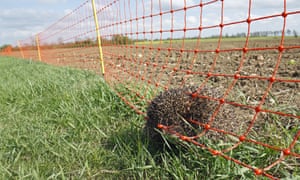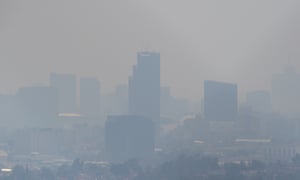“Waste crime is ‘the new narcotics’, says Environment Agency chief”

Waste crime is the “new narcotics” according to the head of the Environment Agency (EA), offering huge profits as the authorities race to catch up with the damage caused to society.
The offences, sometimes involving organised crime gangs, ranged from illegal dumping of household and industrial waste to massive frauds involving recycling fees and landfill tax.
“Here’s what cities could look like in 10 years”

The data confirm it: Cities are the way of the future.
As the years go by, more and more people are choosing to leave behind their suburban and rural lives in search of greater urban opportunities.
” ‘Rapid’ low-carbon transition could damage economic stability, warns Bank of England”

That is the view of the Bank of England governor, Mark Carney, who used a speech in Berlin on Thursday (22 September) to highlight the delicate but critical role that the green economy has in boosting monetary stability while also tackling climate change.
“Carbon Prices About 80% Too Low to Protect Climate, OECD Says”

Carbon prices are about 80 percent lower than where they need to be to protect the climate, according to the Organisation for Economic Cooperation & Development.
“Great white sharks and tuna share super predator genes”

A high metabolism and an impressive swimming pace are two reasons why tuna and great white sharks are such effective predators. New research suggests the two super-predator traits shared by the fish are derived from a similar set of genes.
“Shark Diving Prompts Island Nations to Urge End to Fin Trade”

Island nations that will call for the protection of sharks at a global conservation conference starting in South Africa this week need the support of bigger countries to reverse the decline of the fish, whose fins are coveted in Asia, according to activists.
“One in 10 UK wildlife species faces extinction, major report shows”

More than one in 10 of the UK’s wildlife species are threatened with extinction and the numbers of the nation’s most endangered creatures have plummeted by two-thirds since 1970, according to a major report.
“Toxic air pollution particles found in human brains”

Toxic nanoparticles from air pollution have been discovered in human brains in “abundant” quantities, a newly published study reveals.
“Another big predator in Southeast Asia faces extinction”

Conservationists have long known that it’s hard – and in some cases – nearly impossible to survive as a tiger in Southeast Asia. Burning forests, high human populations and unflagging demand for tiger blood, tiger skin and crushed tiger bone means the big cats have to tread a daily gauntlet of snares, guns and desperate poachers. Now, conservationists are discovering, belatedly, that the same is largely true for leopards.
Arctic sea ice minimum ties record for second lowest

Only a month ago, scientists were suggesting the rate of sea ice melting in the Arctic had slowed and the 2016 minimum was unlikely to break any records.
Fast-forward to early September, as Arctic sea ice levels reached their summertime minimum, and 2016 has joined 2007 for the second lowest minimum on record.
Recent Comments